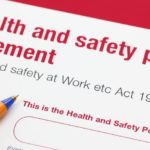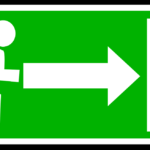Food safety regulations UK
Why are food safety regulations important?
Food safety standards and regulations are essential in order to ensure that food is safe at all points along supply chains in both international trade and within nations themselves.
So this includes food production, manufacture, storage, transportation, handling, preparation and cooking.
Food safety regulations place an obligation on food business operators to ensure that all their activities are carried out in a hygienic way.
Essentially, this makes it an offence to supply food which is unsafe or harmful to human health.
Good standards of food safety are necessary in order to prevent food poisoning, food spoilage, food contamination, allergic reactions, loss of productivity, pest infestations, prosecution for contravention of food safety legislation/regulations and closure of catering operations by enforcement authorities.
The food service industry is under immense pressure to maintain food safety standards and adhere to regulations.
Food Hygiene, otherwise known as Food Safety can be defined as the handling, preparing and storing food or drink in a way that best reduces the risk of consumers becoming sick from a food-borne disease.
Therefore, to ensure that food is prepared and served without any contamination, restaurants and food manufacturers have to abide by specific standards, rules, and regulations to ensure safety.
You should note that the word ‘food’ is defined as also including drinks.
Achieving a good level of food safety should enable your business to obey the law. This will reduce the risk of food poisoning to your customers and protect your businesses reputation.
Costs associated with poor food safety are both financial and social, and can affect employers, employees and customers, which is why it’s vital to adhere to the regulations.

What are the regulations which govern food hygiene in the UK?
The most important food safety and hygiene regulations that apply in the UK today comprise of the following:-
- the Food Safety Act 1990, which provides the framework for food legislation, creates offences in relation to safety, quality and labelling
- the General Food Law Regulation (EC) No 178/2002, which creates general principles and requirements of food law
- the Food Safety and Hygiene (England) Regulations 2013, which revoke and re-enact with some minor changes to the Food Hygiene (England) Regulations 2006 and certain provisions of the General Food Regulations.
- Food information Regulations which enables local authorities to enforce the European Food Information to Consumers Regulation No 1169/2011.
Food Safety Act 1990
The Food Safety Act 1990, as mentioned above, provides the framework for all food legislation in England, Wales and Scotland.
Under the Act, the main responsibilities for all food businesses are to ensure that:-
- nothing is added to or removed from food which means it would be damaging to the health of the people eating it
- food is sold and served of substance and quality which consumers would expect
- all food is labelled correctly and is advertised and presented in a way that is not false or misleading to the consumer
General Food Law
Whether you work in a food business or you’re just a consumer interested in food law and legislation, there are general requirements which you need to be aware of.
This overview covers the main European Commission (EC) and domestic legislation on the following areas:-
- food imports and exports
- safety
- traceability
- labelling
- product withdrawals and recalls
For more detailed advice and guidance on the general food law, please refer to this online guide.
The food safety and hygiene (England) regulations 2013
In England, The Food Safety and Hygiene (England) Regulations 2013 provides for the enforcement of certain provisions of Regulation 178/2002 and for the food hygiene legislation.
It also provides national law for the bulk transport by sea of liquid/oils or fats and raw sugar, the direct supply by the producer of small quantities of meat from poultry or lagomorphs slaughtered on the farm, temperature control in retail establishments, restrictions on the sales and supply of raw cows’ drinking milk and derogations relating to low throughout establishments (slaughterhouses).
Food information Regulation
The EU Food Information for Consumers Regulation was published in the Official Journal of the European Union on the 25th October 2011.
The Food Information Regulations 2014 came into force on the 14th July 2014 in the UK and enables local authorities to enforce the European Food Information to Consumers Regulation No 1169/2011.
Under these regulations, a change to the existing enforcement regime has been taken forward with a move away from the across the board use of frontline criminal offences to a more proportionate and targeted regime using improvement notices.
A backstop criminal offence will be in place where there is failure to comply with an improvement notice, with an offender being liable, on summary conviction, to a fine not exceeding level 5.
Criminal offences will continue for the contravention of certain provisions, mostly mislabelling of foods containing allergens, Failure to comply with the allergen provisions may result in a risk to consumer health and safety.
The regulations also revoke the majority of the provisions of the Food Labelling Regulations 1996. The compositional standards for cream and traditional UK cheeses will be retained until 2018 as will certain alcohol related terms including ‘low alcohol’, ‘de-alcoholised’ etc.
The regulations take up certain derogations and national flexibilities permitted by the FIC:-
- derogation from the need to give mandatory information for milk and milk products in glass bottles intended for reuse. Taking up this derogation maintains the current exemption.
- derogation from minced meat composition standards on fat and collagen to meat protein ratios in the FIC. Taking up this derogation allows businesses to continue to supply the UK market with traditional minced meat provided it is sold under a national mark.
- to retain the requirement for the name of the food to be given for foods sold non-prepacked.
- to retain the requirement for a quantitative indication of the meat content for meat products sold non-prepacked.
- to introduce the specific means by which allergen information provided on a mandatory basis for non-prepacked food has to be given.
- update other food labelling and standards legislation to reflect the FIC Regulation and the introduction of the Food Information Regulations 2014.
Separate but similar food safety regulations have also been made in Wales, Northern Ireland and Scotland.

What are 5 food safety rules?
The main message when it comes to food safety is that there are 5 key rules that should be followed in order to keep our food safe for consumption, which are as follows:-
- keep it clean – wash your hands before and during food handling, and sanitise all surfaces and utensils regularly
- keep raw meats, poultry and seafood from others foods and cooked food – separate at all times to prevent cross contamination
- cook food thoroughly before serving as this will kill almost all dangerous microorganisms – cooking at 70 degrees centigrade and above is recommended
- keep food at safe temperatures – don’t keep food at room temperature for more than 2 hours, refrigerate all cooked and perishable food and keep cooked food piping hot
- use safe, clean water to wash fruit and vegetables and don’t use food beyond its expiry date. Raw materials such as water and ice may be contaminated, so always use safe water.
These are the key principles when it comes to food safety and should be followed at all times, because proper food handling is key to preventing food-borne disease.
Online Food safety courses
Here at UK Online Training, we provide a variety of short online training courses in food hygiene and safety.
If you work in the food industry, either as an employer or worker, then it’s essential that you learn about food safety procedures and current legislation.
Our food safety and hygiene courses will help you in complying with the necessary regulations.
We have food safety courses ranging from level 1 right through to level 5 to suit your requirements as follows:-
- Level 1 food safety – retail
- Level 1 food safety – catering
- Level 1 food safety – manufacturing
- Level 2 food safety – retail
- Level 2 food safety – catering
- Level 2 food safety – manufacturing
- Supervising food safety level 3
- Achieving food hygiene rating level 5
- HACPP course level 2
Need help in finding the right online Food Safety training course for you or your staff?
Then complete the contact form on this page.
Give us a call on 0161 763 3727 and we’ll be happy to assist.
Other articles you may find interesting…
- Health & safety legislation UK FREE On-line course Certificate & Support
 Are you a business owner needing to know more about health and safety legislation in the UK? This article sets out your legal responsibilities under UK law.
Are you a business owner needing to know more about health and safety legislation in the UK? This article sets out your legal responsibilities under UK law. - Fire safety in the workplace
 Business owners, Landlords, commercial property owners & managers must follow strict regulations for fire safety in the workplace in the UK. Read our article to find out what your responsibilities are.
Business owners, Landlords, commercial property owners & managers must follow strict regulations for fire safety in the workplace in the UK. Read our article to find out what your responsibilities are. - Display Screen Equipment Awareness online training
 Are you a business owner needing to know more about health and safety legislation in the UK? This article sets out your legal responsibilities under UK law.
Are you a business owner needing to know more about health and safety legislation in the UK? This article sets out your legal responsibilities under UK law. - First Aid Regulations UK
 Are you a UK employer and wondering what you must do to comply with the first aid regulations? This article will explain what you need to know and do.
Are you a UK employer and wondering what you must do to comply with the first aid regulations? This article will explain what you need to know and do. - Workplace Health and Safety
 Business owners, Landlords, commercial property owners & managers must follow strict regulations for fire safety in the workplace in the UK. Read our article to find out what your responsibilities are.
Business owners, Landlords, commercial property owners & managers must follow strict regulations for fire safety in the workplace in the UK. Read our article to find out what your responsibilities are. - Working Safely training course
 Business owners, Landlords, commercial property owners & managers must follow strict regulations for fire safety in the workplace in the UK. Read our article to find out what your responsibilities are.
Business owners, Landlords, commercial property owners & managers must follow strict regulations for fire safety in the workplace in the UK. Read our article to find out what your responsibilities are.





